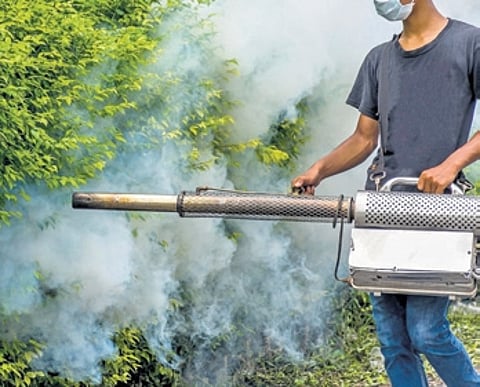

NEW DELHI: The Centre has decided to continue production of DDT (Dichloro diphenyl Trichloroethane) for another five years though the deadline to phase out the deadly chemical is ending this year under the Stockholm Convention, officials said.
The Convention outlawed the production and use of DDT limiting it to mosquito control. Senior officials said demand from African countries made India continue DDT. The Ministry of Environment, Forest & Climate Change (MoEF&CC) will inform the Convention secretariat in September about the decision.
Developed in the 1940s and used to control vector-borne diseases like malaria and typhus, it was soon realized DDT is a potential carcinogen. Despite being banned in agriculture use in 1972, India continued using it to control vector-borne diseases.
MoEF&CC has received consent from the Department of Chemicals and Petrochemicals (DCP) for continuing DDT production to meet its export obligations.
Currently, Hindustan Insecticide Ltd (HIL) is under obligation to meet the demand of 36 MT from five African countries by March-end.
The Ministry of Health and Family Welfare (MoH&FW), a major buyer of DDT to control vector-borne disease, has said it does not need the chemical further as alternatives are available. Moreover, MoH&FW has stocked 578 MT of DDT.
“MoH&FW didn’t give a new order to the sole manufacturer Hindustan Insecticide, whereas DCP is under obligations to meet the demands from African countries,” said Ved Prakash Mishra, director, of hazardous substances management, MoEF&CC.
Besides being toxic to the environment, studies show mosquitoes are developing resistance to DDT. India has been working on environment-friendly alternatives. A joint project with UN agency UNIDO will come up with the world’s first neem-based biopesticides and Bt (Bacillus thuringiensis)-based biopesticides. “Its commercial production would be started by the end of 2025 as we are setting up the facility,” said an official at HIL.